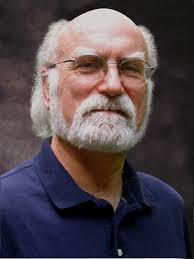Grant Wiggins: A Look Backwards
Friday, May 29th, 2015
How do you measure a life?
One of the most important figures in the field of education died on Tuesday, and there isn’t even a Wikipedia page to update. You can read an excellent obituary for Grant Wiggins on the Education Week website, and I’d like to add a few notes about how his work has affected my own practice, and indeed the way I think about teaching and learning.
I first read Understanding by Design in 2004. The idea behind the process was simple: start with the long-term effect you want to have and work backwards to plan how you will achieve it. What evidence would tell you that you were successful? What tasks can students do to provide this evidence? How can you prepare students to be successful in these tasks? The ideas were so straightforward and intuitively obvious that it was hard to imagine doing it any other way. And yet, that had not been my approach, nor had it been the approach of many of the schools where I worked. Today, all of my schools use Understanding by Design. It was the kind of book that, once read, could not be unread.
Wiggins also wrote of the importance of transfer, the idea that students haven’t really learned the skills if they cannot apply them in unfamiliar situations. His writings on authenticity, teaching concepts using real-world scenarios, were extremely influential in the development of guidelines for the performance tasks that have been so critical to citywide assessment. In retrospect, the ideas that students could only truly demonstrate their learning by through contexts that are both real-world and unfamiliar should have been common sense, but they weren’t widespread before Grant Wiggins.
I met Wiggins in 2008. He was giving a seminar on feedback, another concept that has greatly informed my practice through his teaching. He presented how research shows that feedback — actionable information about the gap between a student’s work and the desired outcome — was a critical factor in learning growth. He discussed what good feedback looks like, and what feedback was most likely to lead to student improvement.
We took a break and I went to the side room to get a cup of coffee. When I returned, I found Grant Wiggins adoringly caressing my brand-new Macbook Air. As I have to carry my computer with me all day, I had bought the super-thin laptop the day it came out, and this was the first time Wiggins had seen one. We had a very pleasant chat about technology, schools, and culture.
Since then, Wiggins has been a voice that I have followed closely on issues of education. His excellent blog provided regular commentary on the field. He usually came down on the same side of controversies as I did, and those rare instances when he didn’t were welcome invitations for me to reexamine my own thinking. I took comfort that his recent call for the state to release the standardized tests was completely in line with my own opinions on the subject. His frequent defense of the Common Core was always based in teaching and learning, rather than politics, which is a refreshing perspective. His voice will be greatly missed.
I once attended a lecture by his Understanding by Design co-author Jay McTighe. He said that none of the teachers in Grant’s kids’ school wanted the Wiggins children in their classes. Can you imagine Grant Wiggins coming in to examine your work on parent-teacher night? But that’s who he was for all of us, the unreserved truth-teller who wasn’t afraid to give us the honest feedback that would lead to our growth. And it did. In a world where academics often use flowery language to impress their colleagues while actually accomplishing very little, Grant Wiggins had the power to shift the thinking of an entire field using concepts that could be expressed, if one so desired, in monosyllabic words. His eloquent expression of those concepts made them even more powerful. It’s almost as though he started with the impact he wanted his writing to have, and then chose words that would be most effective in having that impact.
Rest in peace, Grant Wiggins. By all available measurements, you did what you set out to do.